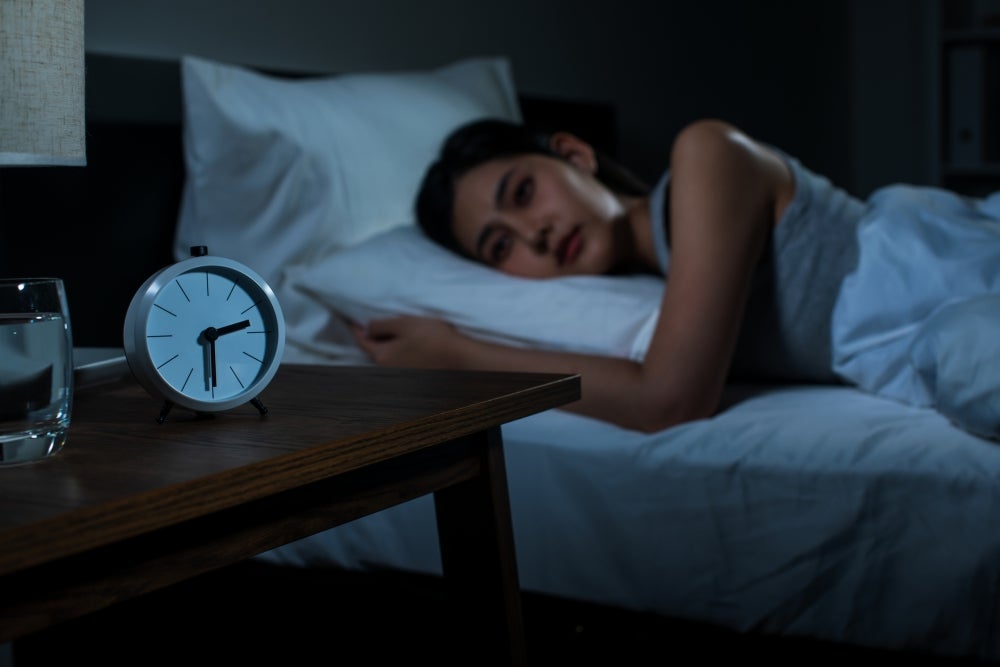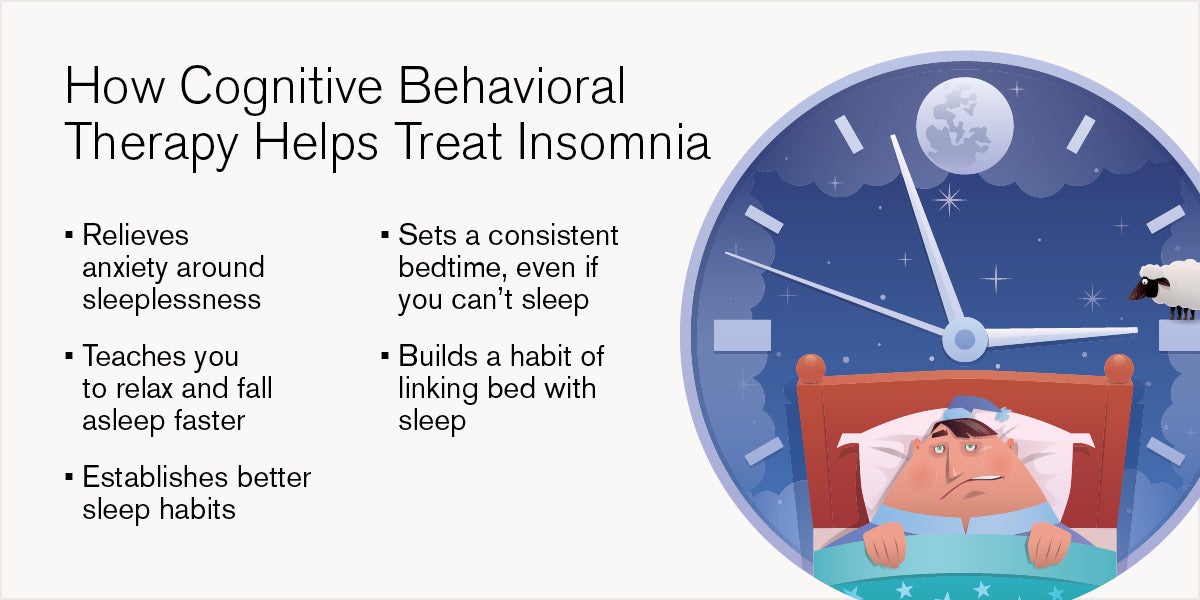Why am I so tired? A comprehensive guide to insomnia
October 16, 2025
By: Sunita Kumar, MD, FCCP, FAASM
Categories: Sleep Medicine
Tags: Sleep Medicine, Sleep disorders, Insomnia
Insomnia may seem like a rare sleep disorder, but, at any given time, 25 to 30 million Americans are affected. For these people, their nights are anything but restful. Whether it’s due to digital overload or personal stress, a consistent lack of sleep can lead to insomnia. Though it may seem impossible to overcome, the disorder is treatable. With certain lifestyle changes and help from specialists, those constantly tossing and turning at night can achieve a better night’s sleep.
What is insomnia?
If someone consistently has difficulty falling asleep or staying asleep, or finds themselves frequently waking up in the middle of the night, despite going to bed on time or preparing the right environment, they likely have insomnia. There are two main types, categorized by how long the person is suffering.
- Short-term: This is a brief episode (less than three months) of trouble sleeping, typically caused by stressful life events or illness. Usually, symptoms resolve on their own as the stressful situation is dealt with.
- Chronic: This is a long-term pattern of restless sleep, defined as three nights per week for longer than three months. While this too can be tied to stressful situations, it can also be related to poor sleep hygiene, mental health disorders, physical problems or other sleep disorders.
“Insomnia often reflects an imbalance between the body’s need for rest and the mind’s resistance to it. Understanding this disconnect is the first step toward effective treatment,” says Sunita Kumar, MD, director of Loyola Medicine’s sleep program.
How to recognize insomnia symptoms
Most people experience nights of poor sleep here and there, but insomnia is more substantial. By keeping a sleep diary and tracking the following symptoms, your doctor can determine if you have the disorder:
- Lying awake for a long time before you fall asleep. This is more common in younger adults.
- Sleeping for short periods of time. You may wake up often during the night or be awake for most of the night. This is the most common symptom and affects mostly older adults.
- Waking up too early in the morning and struggling to fall back asleep.
These symptoms can lead to feeling unrested, excessive sleepiness during the day, general fatigue and a lack of focus on daily tasks. Anxiety, depression and frustration can also arise from insomnia. If you feel that your lack of sleep is affecting your daily life, it may be time to speak with a sleep specialist.
How insomnia is diagnosed
Insomnia is a clinical diagnosis. While normal sleep differs for everyone, any time your daily life is being negatively impacted by your sleep quality or quantity, talk to your doctor. They will initially ask about your medical history and any medicines you are taking. They may then perform a blood test to rule out certain medical conditions like thyroid problems.
If you haven’t been keeping a sleep journal already, your doctor may ask you to start one for a period of time to observe sleep patterns and habits. If they suspect you have symptoms of other sleep disorders or if the insomnia is not responding to treatment as expected, they may order a sleep study where you stay overnight in a special lab that monitors your breathing patterns, limb movements and other characteristics.
“Persistent sleep disturbances should not be dismissed as routine stress. When sleeplessness begins to interfere with daily functioning, it becomes a clinical concern that warrants attention,” says Dr. Kumar.
Cognitive behavioral therapy for insomnia
The most common and effective treatment for chronic sleep deprivation is cognitive behavioral therapy for insomnia (CBT-I), a type of psychotherapy. CBT-I focuses on changing the underlying thoughts and behaviors that negatively impact your sleep patterns. In the case of insomnia, CBT is normally spread over a 6-to-8-week treatment plan and teaches you how to fall asleep faster and stay asleep longer.
- Cognitive therapy addresses the beliefs that limit your ability to get good sleep.
- Relaxation or meditation therapy which teaches you how to relax, quiet your mind (racing thoughts) and fall asleep faster.
- Sleep education helps you learn good sleep habits, such as avoiding screens before bed, keeping the room dark and cool and avoiding caffeinated beverages after lunch.
- Sleep restriction therapy restricts the amount of time spent in the bedroom and increases this duration gradually as sleep efficiency (time spent in bedroom to time spent sleeping) increases.
- Stimulus control therapy whereby you limit awake time spent in the bedroom so you can link being in bed with being asleep.

Much of what CBT helps with is improving sleep hygiene patterns, creating a better mindset and environment for proper sleep. Sometimes medication is combined with CBT if the doctor deems it useful, but often therapy is the first and only line of treatment used as most patients find improvement in their insomnia.
“Cognitive behavioral therapy is about rewiring how you think about sleep, how you prepare for it and how you respond when it doesn’t come easily. It’s a process, but one that empowers you to take back control,” says Dr. Kumar.







